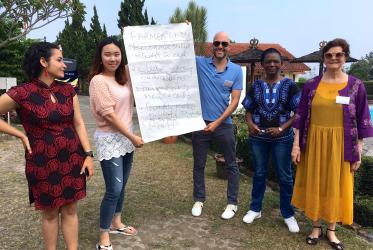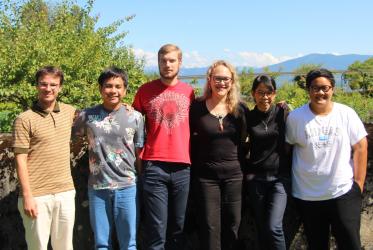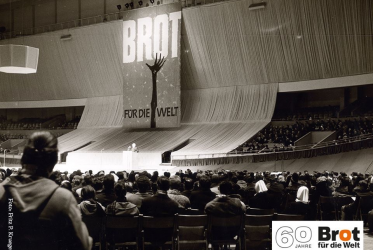Displaying 141 - 160 of 490
30 January 2020
WCC joins tribute to Rev. Canon Prof. John Samuel Pobee
28 January 2020
Eco-School promotes blue communities, green churches
19 November 2019
The cry of the Papuans in Indonesia
14 November 2019
Those who make Bossey so special: The students
14 November 2019
New academic year underway at Ecumenical Institute, Bossey
18 September 2019
School on economics proves “eye-opening” across globe
02 September 2019
“Economy of life” lifted up at special school in Indonesia
22 August 2019
Many join in prayer for Christian unity
31 May 2019








